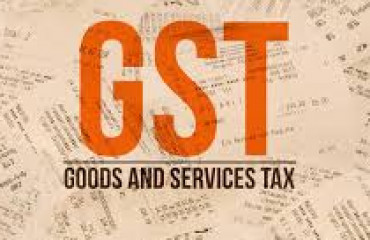
NEW DELHI : Changes to the indirect tax system approved by the Goods and Services Tax (GST) Council this week, aimed at making GST registration foolproof, will curb the “toxic tax credits" that get passed on among errant businesses and improve the revenue productivity of the indirect tax system, Central Board of Indirect Taxes and Customs (CBIC) chairman Vivek Johri said.
NEW DELHI : Changes to the indirect tax system approved by the Goods and Services Tax (GST) Council this week, aimed at making GST registration foolproof, will curb the "toxic tax credits" that get passed on among errant businesses and improve the revenue productivity of the indirect tax system, Central Board of Indirect Taxes and Customs (CBIC) chairman Vivek Johri said.
Johri said the ministerial committee that looked into the GST system's IT processes had recommended some key measures to make sure that those seeking GST registration are genuine entrepreneurs.
"The ministerial group on IT systems suggested a few things. One of them is the use of artificial intelligence and machine learning for profiling of new tax payers. The second suggestion is the use of electricity meta data to ensure that every person seeking new registration actually exists physically at that location. The third is geo-tagging of the location. All three things will enable us to ensure that the person entering the (GST) system is a real physical entity and is not there just to raise fake invoices," Johri said in an interview.
The GST Council also approved ways to check misuse of Aadhaar for identity theft by those setting up bogus entities to game the system. Tax authorities are concerned that those setting up bogus entities use the Aadhaar details of others, for example, of some worker they have employed. To deal with this, in the case of certain high risk tax payers, physical biometric verification of the person to check whether it matches the Aadhaar details provided will be undertaken.
GST registration will also be linked to Unique Identification Authority of India (UIDAI). These decisions were taken at the two-day GST Council meeting in Chandigarh that ended on Wednesday.
Johri said that already the government is analysing data from GSTN, the company that processes GST returns, customs department and the income tax department. "We are trying to use it in the best possible manner for risk profiling. GSTN is already exchanging data with the ministry of corporate affairs (MCA), particularly with respect to new companies. MCA has data on new companies and we are able to check with them whether the person seeking new registration is on their database. Likewise, we are exchanging data with UIDAI. Many datapoints are collected for risk profiling," said the CBIC chairman.
The measures approved by the GST Council will make the tax system more productive, he said. "Besides checking tax evasion, these measures also help in better revenue productivity. You do not want people in the system to just raise fake invoices. Toxic credit going around in the system compromises our revenue (receipts)," said Johri.
The indirect tax system which completes five years on Thursday, is going in the right direction, he said. The proposals on GST rate rationalization which entailed removing tax exemptions and correcting duty inversion addresses the distortions which weaken the tax system, he said.
